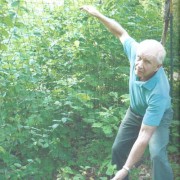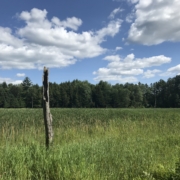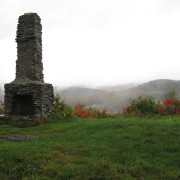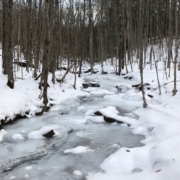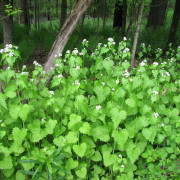Neighbors Unite to Protect Wildlife Habitat and Working Forestland
This project secures the protection of the many conservation values carefully stewarded by the Larsons for the benefit of generations to come. Certified as a New Hampshire Tree Farm, the Larsons’ property has a forest management plan in place that ensures sustainable forestry and encourages wildlife habitat protection, particularly for songbirds. The Larsons have consulted with Audubon biologists to carefully improve habitats necessary for the many migratory songbirds that stopover on the property, or stay during the nesting season. These efforts to steward quality habitat have led to the property’s name: “Songbird Forest.â€

In addition to songbirds, the property provides high quality habitat for other wildlife. The Larsons have set up a hidden camera in a portion of the property that is a corridor used frequently by wildlife heading to Pout Pond. This camera has captured images of turkeys, fox, coyote, deer, bear, moose, mink, raccoon, skunk, opossum, painted and box turtles, and squirrel.
Songbird Forest fits into a large and growing corridor of conserved lands that stretch from, and are visible from, the Appalachian Trail corridor. The property is surrounded on three sides by other conserved land; large tracts of UVLT-conserved land are located within two miles, including Demmick Hill and Trout Pond Forest.
This cluster of protected properties continues to grow. Nearby, a 7.44 acre portion of the Elder Farm on Acorn Hill Road, owned by Ray and Tina Clark was also recently conserved with UVLT. According to UVLT Project Manager, Sara Cavin, “Though small, this piece of the Elder Farm has important connections to this other protected land, enhancing specific views, and maintaining the integrity of the agricultural uses that have gone on in the region.†Within two miles of this portion of Elder Farm are 950 acres of land conserved by UVLT, as well as more than 1800 acres of other conserved or public land.
In addition to the recent conservation of part of Elder Farm and the Larsons’ Songbird Forest in Lyme, another local family is currently working with UVLT. This project will likely be completed in early 2010, and its completion will complement the hundreds of acres of permanently protected open space and wildlife habitat surrounding Pout Pond and Trout Pond in Lyme. Together, these conserved lands provide many benefits including scenic views, water quality protection, wildlife habitat connectivity, as well as serving as examples of productive and sustainable land management practices. This group of projects demonstrates the impact that neighbors working together can have on the future of a landscape.


